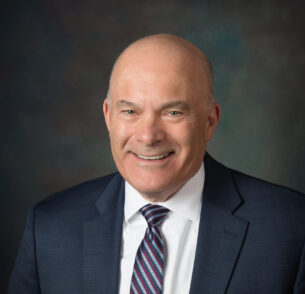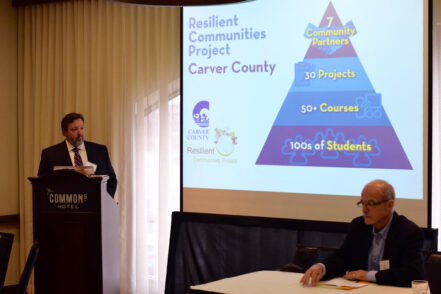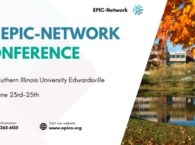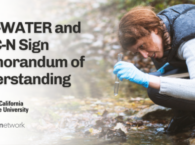Kurtis Ulrich partnered with University of Minnesota’s EPIC-N program as Ramsey’s city administrator
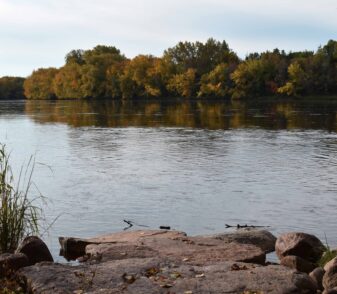
Favorite Place
The banks of the Mississippi River just south of City Hall. The City of Ramsey sits on the Mississippi River and is part of the Mississippi River National Recreation Area. Shown here is the river landing at a regional park just south of city hall.
Ramsey is a rapidly growing suburb and the river represents a constant tranquil force that grounds the community.
Among the conflicts that occur at the rural-urban fringe, the river reminds us that things are ever changing.
How did you first learn about EPIC-N?
I learned about EPIC-N through our community’s partnership with the University of Minnesota and their Resilient Communities Project (RCP).
Describe your first interaction with a school community partnership project
Personally, I was the liaison for an historic preservation project of the communities one-room school and town hall built in 1892. Students from the University Minnesota examined the adaptive re-use of the building that had been neglected and fallen into disrepair. The information in the report helped to keep the project alive and relevant in the community. I support preserving and honoring the history of the community and the student research is being used to support investment and preservation of this unique structure and community landmark. Two different classes worked on the project; one class provided historic background and information about potential reuse, and the other reviewed the architectural and construction investments needed to make the building functional again.
This was part of a bigger initiative where the City of Ramsey did a series of 15-20 small projects with various classes at the University of Minnesota organized by RCP. The efforts benefited the city as it prepared its 2024 comprehensive plan and added energy and enthusiasm to the process.
What are some of the top priorities you are working on this year?
Our top priorities this year include long-term infrastructure funding, capital asset preservation, economic development, and community outreach to multiple-family communities.
What led you to participate within the EPIC-Network in your current capacity?
The value offered by the University of Minnesota’s EPIC-N Program, the RCP, to research a variety of topics in the community.
In what ways are you looking to engage, or work with others, either from within the EPIC-Network, or in general?
I’d like to share our story and learn from others on how these collaborations are utilized to move a community forward.
Why do you think the EPIC-Network is important?
From my standpoint, it is importance to recognize the resources that are available to assist communities in taking on current challenges offered by the university. For the students participating in the RCP, I watched them gain exposure to real-life problems and gain experience in arriving at solutions.
What do you want a community, or university, to know about the EPIC-Network?
Universities and communities gain value by working together.
What is your favorite part of the EPIC-Network?
Our community’s experience with our partnerships with the University of Minnesota’s RCP have been overwhelmingly positive.
What are you hoping attendees will take with them after attending your upcoming presentation?
I hope that our experience working with our university will inspire others to consider such partnerships in their community.
Bio
Kurtis Ulrich is currently City Administrator for the City of Ramsey, Minnesota, a suburb of Minneapolis (population 27,500) serving in this position since 2007. During his career, he served as City Administrator in two other Minnesota suburban communities and as the Assistant Commissioner for Administration at the Minnesota Department of Natural Resources. Prior to city administration, he was in the field of urban planning and economic development. He has a Doctorate in Public Administration from Hamline University, a Masters of Business Administration from the University of St. Thomas, a Masters of Arts in Urban and Regional Studies from Minnesota State University, and a Bachelors of Arts in Urban Studies from the University of Minnesota Duluth.
